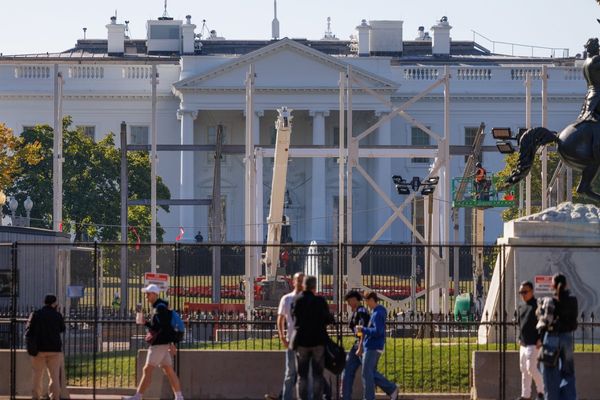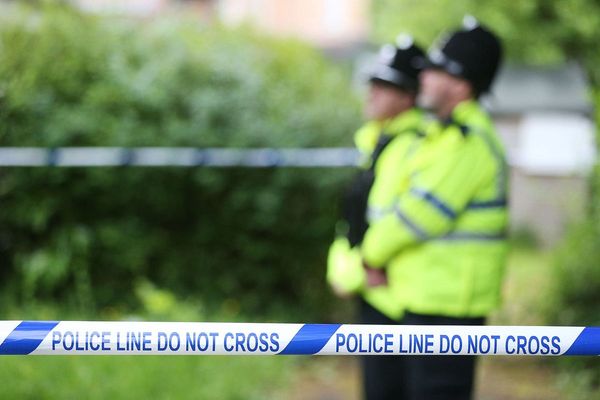WASHINGTON _ California was one of the first states in the country to legalize abortion, and its expansive laws on reproductive rights mean that it will still be legal to terminate a pregnancy in the state, even if the Supreme Court overturns Roe v. Wade.
Some believe that landmark 1973 decision, which struck down state abortion bans, is in jeopardy if D.C. Circuit Court Judge Brett Kavanaugh is confirmed to the Supreme Court later this year. President Donald Trump nominated him to replace retiring Supreme Court Justice Anthony Kennedy, who acted as a swing vote on some reproductive rights cases. And Trump repeatedly promised during the 2016 campaign that Roe would be overturned if he got the chance to reshape the court.
Legal scholars and those on both sides of the reproductive debate suggest, however, that there are other ways a more conservative Supreme Court would restrict abortion laws in the country _ even in California.
With Kavanaugh on the Supreme Court, the justices could, for example, uphold a pending White House proposal that would block federal funding for Planned Parenthood, the nation's largest abortion provider. Roughly a million Californians would be affected. Activists also fear the court would side with Republicans in Congress if they succeeded in passing a law prohibiting abortion beyond a certain week of pregnancy, a top priority of abortion opponents.
"What we've been advocating before at the federal level is the five-month abortion ban," said Mallory Quigley, spokeswoman for Susan B. Anthony List, which opposes abortion. Senate Republicans introduced just such a ban last fall, which has the support of 46 senators. It would have to gain 60 votes, however, to overcome the threat of a filibuster. But Quigley hopes that elevating the abortion debate, as Kavanaugh's confirmation hearings are likely to do, will help their efforts.
"The pro-life movement can only gain from the increased conversation of what abortion is," she said. "The more people who are educated about what's happening during the abortion procedure ... (the) more and more Americans will support limiting abortion earlier and earlier."
Crystal Strait, president of Planned Parenthood Affiliates of California, says that kind of agenda is why advocates for reproductive rights in California need to be concerned about Kavanaugh's confirmation.
"Many Californians will say, 'Well, our constitution and our statutory laws protect privacy and protect the right to abortion. What do you have to worry about?' And you unfortunately have a lot to worry about."
California is the only state in the country that has enshrined a right to privacy in its constitution, something voters approved via a 1972 ballot initiative. Just a few months later, the Supreme Court recognized the same right, which underpinned its decision in Roe. Privacy rights are not, however, explicitly mentioned in the U.S. Constitution.
Citing California's constitutional language on privacy, the state Supreme Court has struck down funding restrictions on abortion in California's Medicaid program, known as Medi-Cal, and parental consent requirements for abortion.
In 2002, the state Legislature passed the Reproductive Privacy Act, which granted residents of the state the "fundamental right" to obtain an abortion as well as "to choose or refuse birth control" _ effectively codifying Roe.
Overturning Roe doesn't change California law, legal experts confirm. It simply gives states the option to outlaw abortion if they choose to, re-creating the national patchwork of rules that existed before 1973. Quigley argued that's more democratic, because it would restore the authority to the states on the issue. As NPR reported last month, four states have what are known as "trigger laws" on the books, which would make abortion automatically illegal if Roe is reversed. A number of others would likely move to strictly limit the practice again, if allowed to do so.
"Certainly it's going to be more harmful in states where these laws could eliminate abortion providers from entire regions and eliminate providers from the entire state," said Jennifer Dunn, a law professor at University of California Hastings in San Francisco. But "abortion access is at risk ... in California, as well."
One example of how that could happen comes via the current battle over a federal grant program known as Title X, which provides family planning and reproductive health services to low-income women. The Trump administration has proposed new rules barring clinics that perform abortions, or that refer patients to abortion clinics, from receiving Title X funds. The proposal has provoked an uproar, drawing more than 100,000 public comments during the comment period, which ended Tuesday.
When it announced the proposal, the White House said it would help end "taxpayer support for the abortion industry." Federal law already bars funding from being used to provide abortion services, directly. But groups that perform abortion, like Planned Parenthood, receive public funding for other women's health services they provide. Conservatives have long sought to prohibit that, arguing it's necessary to "ensure complete financial separation between American tax dollars and abortion related activities," as Tom McClusky, president of March for Life Action, wrote in a May op-ed.
Strait, however, says the aim of the regulation is "specifically to try to get (Planned Parenthood) to close or not provide abortion."
Californians rely heavily on Planned Parenthood. As state Attorney General Xavier Becerra pointed out in a comment letter filed Monday, the state's Title X family planning program "collectively serves more than one million patients annually" _ over a quarter of Title X patients nationwide. The funds go to support clinics in 37 of California's 58 counties.
"The Proposed Rule seeks to create barriers to access to women's healthcare, including abortion," said the letter, which was signed by a total of 13 attorneys general from around the country.
If the Trump administration proceeds with the rule this fall, as expected, California and other Democratic states are likely to sue. The case would likely end up at the Supreme Court, with Kavanaugh as the potential deciding vote, the way Justice Kennedy was before him. Kennedy's retirement became official on Tuesday.
In other words, how the next Supreme Court justice weighs in on Roe v. Wade is ultimately less important to Californians than how that justice rules on other abortion and health-related cases likely to come before the court.
If the Supreme Court sides with the federal government over the state in these cases, Californians could see curbs on their access to abortion, despite the state laws on the books. The state learned that earlier this summer when the Supreme Court upheld an injunction against a 2015 law requiring crisis pregnancy centers in California, many of which oppose abortion, to notify clients of state programs offering contraception and abortion. The majority, including Kennedy, ruled that it likely violated the First Amendment.
"The timing of the (National Institute of Family Life and Advocates v. Becerra) case was so powerful in underscoring what one justice can do, because obviously it was a 5-4 decision," Quigley said.
Had President Barack Obama succeeded in appointing Merrick Garland to replace conservative Justice Antonin Scalia the Supreme Court in 2016, or Democrat Hillary Clinton had won the presidential election and appointed Scalia's replacement, "we may not have had that victory."
Michele Goodwin, a law professor at the University of California, Irvine, suspects that going forward, the court is more likely to tackle cases that progressively tighten access to abortion and reproductive services, rather than a direct challenge to Roe. Both Goodwin and Dunn say that in that sense, Kavanaugh's views on the 1973 abortion ruling have become a symbol of the broader tug-of-war over women's reproductive choices.
For reproductive rights advocates like Strait, that comes with a risk.
Kavanaugh, a one-time Kennedy clerk, could defuse potential opposition in the Senate by suggesting "he might not overturn Roe and make people say, 'Oh we're safe,'" she said. "When really it's so much bigger than that."







